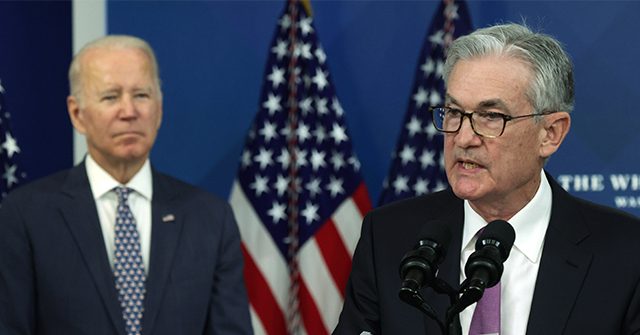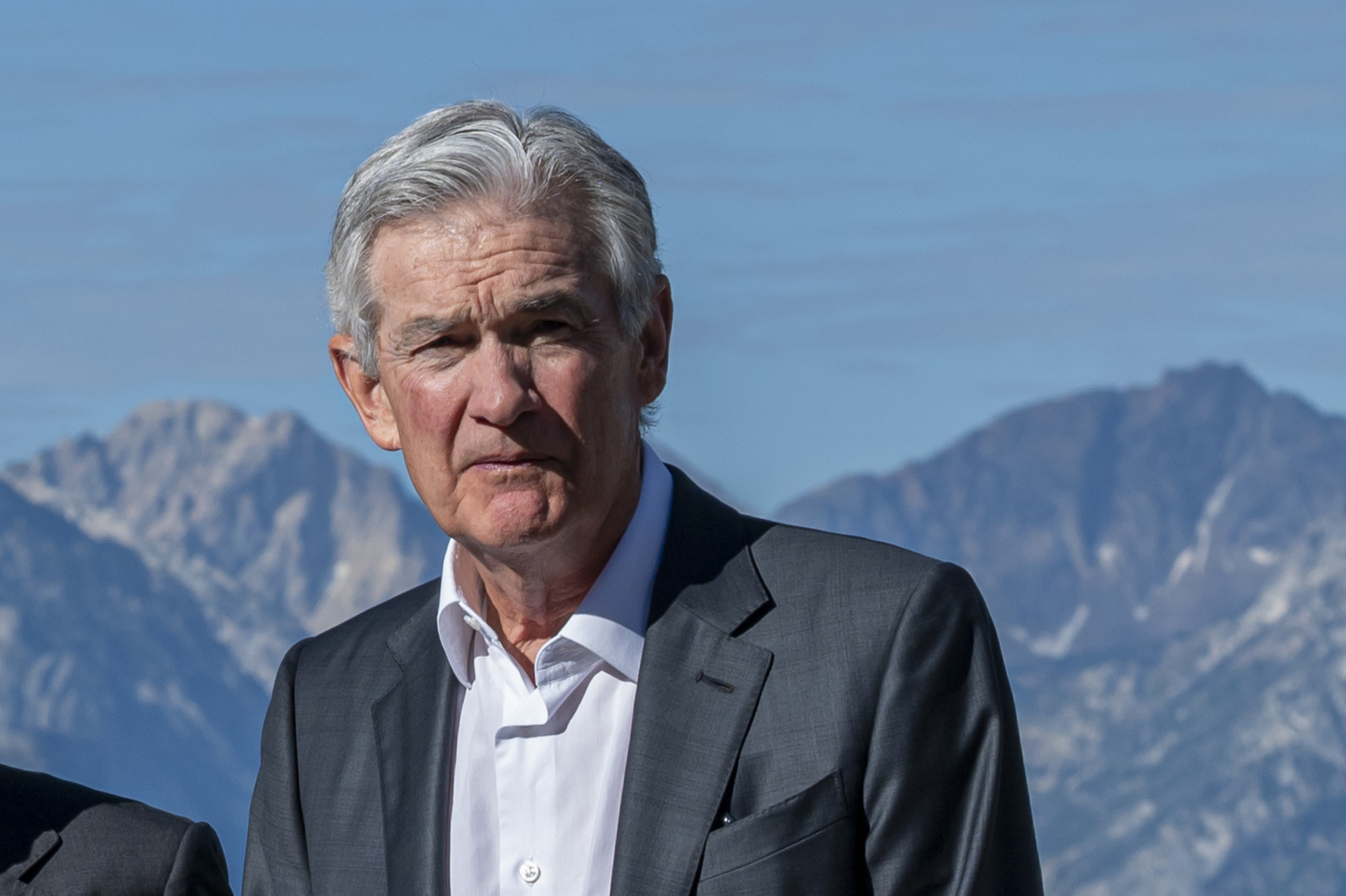Top News
Breitbart Business Digest: Powell’s Jackson Hole Speech Gives a Whiff of a Clash with Biden White House

From J-Hole to the Fox Holes
There’s a clash coming between the Federal Reserve and the Biden administration.
President Joe Biden has been touting what he says are the accomplishments of “Bidenomics.” He has claimed credit for inflation coming down, the strength of the jobs market, and investment in domestic manufacturing and infrastructure. He celebrates rising wages as evidence that he is “growing the economy from the bottom up and the middle out.”
This is not all that surprising. All U.S. presidents tout the economy when it is doing well and enjoy taking credit for peace and prosperity at any opportunity. Biden’s leadership on economic matters is deeply unpopular with the electorate; so, of course, he is trying to talk the American people into a more appreciative mood.
The trouble is that what Biden is touting is very troubling from the perspective of the central bank and its struggle to bring down inflation. Inflation has come down but at a much slower pace than would be typical given the rapid rise of interest rates over the past year and half. And the rise in manufacturing and infrastructure investment has been fueled by huge deficits and an expansionary fiscal policy that are likely to fuel inflation.
Perhaps most importantly, wages are rising too quickly. Average hourly earnings were up 4.4 percent in July compared with a year earlier. The employment cost index rose one percent in the second quarter and was up 4.5 percent in the 12 months through June. Wage growth at that level is not consistent with two percent inflation. It looks more like the kind of wage growth you would expect to see with four percent inflation.
Job Openings and Unemployment Say the Labor Market Is Still Tight
Even though the ratio of unemployed persons to job vacancies has come down this year from its record-smashing highs near two percent, this gauge of labor market tightness remains extremely high. With 9.58 million job openings and 5.96 million people officially unemployed, there are currently around 1.6 openings for each unemployed person, a ratio not seen for generations prior to the pandemic. Very clearly the demand for labor is still outstripping supply.
Unemployment remains extremely low—and does not seem to be moving at all. So, the only way the vacancy-to-unemployment ratio has come down is because of the reduction of openings. That might not last, however, given the pace of growth.
It’s very likely that job openings fell because employers—like just about everyone else—expected a recession to arrive this year. Instead, the economy grew two percent in the first quarter and then accelerated to 2.4 percent in the second quarter. The data so far on the third quarter implies that the economy may be growing even faster than that. The Federal Reserve Bank of Atlanta’s GDPNOW model sees the data as describing an economy growing at an unbelievable 5.9 percent annual rate of growth in the third quarter.
The persistent growth of the economy is likely to prompt employers to seek out even more employees, pushing the job openings number up and possibly pushing the unemployment rate even lower. That’s likely to put even more upward pressure on wages or at least sustain wage growth at near the current levels. Low levels of unemployment and high wage growth will keep consumer spending up, which will make inflation stickier.
Greedflation vs. Above Trend Growth
Powell has frequently stated his belief that it is possible to bring down inflation without raising unemployment by too much or putting the economy into a recession. He has said that the economy does not necessarily need to contract to tame inflation, but it does need to grow “below trend” for some time. Since the Fed sees trend growth as 1.8 percent per year, that means it thinks the economy needs to slow significantly from the first and second quarter’s rate—to say nothing of this Atlanta Fed nowcast of 5.9 percent.
At the Jackson Hole monetary policy symposium on Friday, Powell stated directly that “evidence of persistently above-trend growth could put further progress on inflation at risk and could warrant further tightening of monetary policy.” In other words, unless the economy slows down dramatically, the Fed is going to have to start hiking again next year.

Federal Reserve Chair Jerome Powell at the Jackson Hole economic symposium in Moran, Wyoming, on August 25, 2023. (David Paul Morris/Bloomberg via Getty Images)
That will be likely to provoke outrage from the Biden campaign—especially if the hikes work to slow growth in an election year. The White House may or may not be as public in its criticism of the Fed as Donald Trump was, but its surrogates and supporters on Capitol Hill are sure to go on the warpath.
Biden’s political and economic advisers apparently believe that the Fed is wrong about the causes of inflation. They think prices moved dramatically higher because a surge of corporate greed led businesses to hike prices to increase profits. (Of course, they never quite say why that would have happened just a few months after Biden’s election.)
Here was Biden at the one-year birthday party of the climate and infrastructure spending bill dishonestly called the Inflation Reduction Act:
And while unemployment is down, in case you haven’t noticed, inflation is down, too, and it’s going lower. (Applause.)
Rememeber — remember what the experts said? To get inflation under control, you needed lower wages and higher unemployment. Not a joke. Those of you who are economists know that’s the economic mantra: To get inflation under control, fewer jobs, more unemployment. That’s number one. And making sure that you don’t have to deal with — that’s what they say caused the inflation.
But I never thought the problem was too many people working or working people making too much money. And one reason we’ve seen inflation fall by two thirds without losing jobs is that we’re seeing corporate profits come back to — down to earth.
That’s an outright rejection of the Fed’s model of the economy in favor of the fantasy of greedflation.
If the Fed is forced to tighten because of persistent inflation, Biden’s greedflation theory will be the ideology fueling a clash between the central bank and the Democrats.
Read the full article here


















